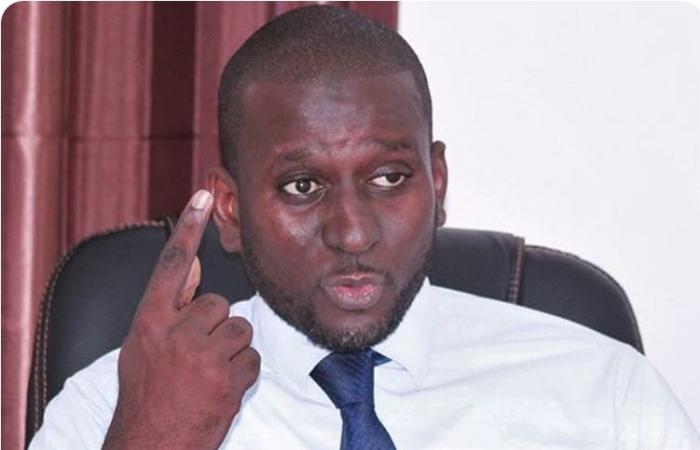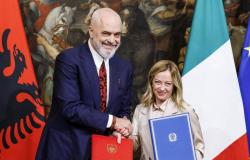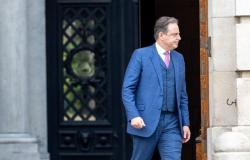Former Senegal President Macky SALL recently reacted to allegations made against him and his last three finance ministers by the current government. Accused of having falsified the debt and budget deficit figures, he chose to deny the facts and defend himself in an interview with Bloomberg, affirming that the information recently released by Prime Minister Ousmane SONKO does not reflect reality .
And yet the portrait is disturbing and the facts are damning! The budget deficit increased from 5 to 10% of GDP and debt from 70 to 83% of GDP overnight, far exceeding UEMOA standards. Unfortunately for nihilists these facts are difficult to refute. The manipulations involve practices often described as “creative manipulation” of the budget, or even fraud in certain extreme cases. Indeed, techniques have been implemented to produce a more favorable budgetary picture, thus camouflaging the seriousness of the economic situation. To manipulate budget figures so as to reduce the apparent budget deficit and display a low level of debt, several accounting and strategic techniques have been used. Although these methods can give a temporary appearance of sound management as indicated by former President Macky SALL in his interview, they are illegal but also present a high risk of loss of credibility with credit rating agencies and economic sanctions. , or even legal proceedings for those responsible.
From my point of view, here is a detailed overview of the suspicious practices adopted by the accused between 2019 and 2023:
? Modification of budgetary expenditures: This technique consists of deferring certain expenditures to a later financial year, which reduces the expenses recorded in the current financial year. It consists of modifying the expenditure or revenue figures to adjust them to the set objectives. For example, including fictitious revenues or underestimating real expenses. This practice leads each year to a reconsideration of the budgetary hypotheses by making withdrawals (2 or 3 times during financial year n) to reposition them in financial year n+1. Thus, this practice discredits the budget because the apparent budget deficit is reduced, but in reality it is moved to the next financial year or transferred to other private legal entity entities;
? Acceleration of revenues: This may involve anticipating revenue collection, such as the sale of assets or posting fictitious or premature revenues, such as those from oil exploitation in the Sangomar offshore project;
? Creative accounting: This method includes the creation of parapublic entities to
transfer debts outside the official budget. For example, several agencies have been transformed into public companies to hide worrying debt. Indeed, the high authority at the time endorsed the creation of new public companies or the transformation of highly indebted public organizations into public companies that did not meet any solid economic justification, further exacerbating the financial situation of the country. These include, for example, certain agencies such as the Senegalese Press Agency (APS), the former State Built Heritage Management Agency (AGPBE) which became SOGEPA or the former Information Technology Agency of the State (ADIE) which became SENUM. We can also cite PETROSEN, although inherited from a previous period, this public company had to absorb enormous debts from the State in terms of energy production, thus masking the true level of debt, this is also valid for Cos-PETROGAZ. On this deception, there is not only the creation of non-viable public entities but also plethoric and hasty ones. Indeed, of the 19 existing public companies, the 9 were created between 2019 and 2023, and only few are those which are economically viable and justify a useful public service like the “Autoroutes du Sénégal”, created in 2024 and responsible for the road management and construction;
? Off-Budget Debt Shift: This involves transferring part of the debts to parapublic entities or creating off-balance sheet vehicles (Special Purpose Vehicles, SPV) to isolate the debts. For example, this involves transferring infrastructure debts (roads, airports) to state companies or separate entities so as not to include them in the state budget. We find these practices in the management of the Autonomous Port of Dakar (PAD-SA), the AIBD and even Air Senegal from 2019 to 2023.
? Non-recording of Liabilities: This involves not recording certain debts, guarantees, or future financial commitments. For example, the current authorities recalled the non-recording of 650 billion by the former authorities; this constitutes blatant fraud. In this case, “off-balance sheet liabilities” may include state-guaranteed loans or liabilities linked to public pension funds, which are ignored in the budgetary accounts.
? Transfer of expenditure to other entities: Concealing expenditure by transferring it to decentralized bodies (local authorities, independent agencies) or by classifying it as private expenditure. It was noted, in fact, the concealment of budget-intensive programs in the parapublic sector by transferring them to local authorities as budgetary support like the “XËYU NDAW ÑI” program. Indeed, this program without amortization plan or reimbursement plan is diluted in many entities, thus creating a budgetary burden at the latter, deviating for the majority from their primary objective and favoring political patronage and nepotism.
The methods used by the old regime’s authority to present the debt favorably proved profoundly harmful, both economically and politically.
In short, these techniques have serious long-term economic and political consequences if poorly managed. This is why the current administration has adopted bold measures to restore confidence in budgetary management and put an end to practices that compromise the very foundations of national credibility. Consequently, the government of Prime Minister Ousmane SONKO is more concerned with correcting the damage than justifying these falsifications to innocent nihilists and those who deny their own failings.
So, to correct these manipulations and restore budgetary transparency, here are some essential steps that I suggest and which must follow the IGF audit which has certainly identified the entire debt outside the national budget, overestimated assets and concealed transactions. :
1. Reintegration of Hidden Liabilities: Reclassify all liabilities hidden or transferred off-balance sheet in the main budget and adjust the actual level of debt from the 2025 BIA.
2. Revaluation of Assets: Rigorously evaluate public assets (real estate, participations) according to recognized accounting standards.
3. Transparent Communication: Publish a detailed financial report on the real debt situation, explain the adjustments and restore the confidence of stakeholders (creditors, financial institutions).
4. Accounting Reforms and Governance Framework: Adopt reforms to strengthen the public accounting framework and limit room for maneuver to manipulate figures and better supervise the parapublic sector.
Dr Alpha Ousmane AW
Deputy National Delegate of Executives Awalé
Framework at the MFB






